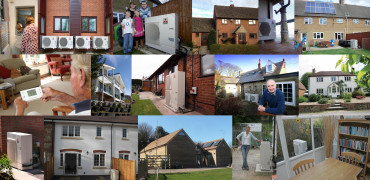I’ve been encouraging our profession to embrace renewable heating, and particularly air source heat pumps to ensure that you are able to meet the demand from the increasing number of homeowners who are seriously considering this ‘green’ alternative to gas and oil.
And with the Government predicting that we will see heat pump sales of over 1 million units per year by 2030, I do see this as an increasing area that heating engineers need to understand.
But is there additional training required? And what qualifications do you need to fit and service a heat pump?
Air source heat pumps essentially come if two variants: Monobloc and Split systems.
I’ve covered whether accreditation to the Micro Certification Scheme (MCS) is worth the paperwork in a previous column (short answer: Yes, it’s worth the bother if you want to be able to sell heat pumps to customers on the back of Government incentive payments).
But heat pumps contain refrigerants, so doesn’t that mean you’ll need a whole load of F-Gas qualifications if you need to service a heat pump?
Well no, actually, at least certainly not for the vast majority of heat pumps already out there and being fitted by the tens of thousands each year.
Two types of ASHP
Air source heat pumps essentially come if two variants: Monobloc and Split systems.
Split systems do have an outdoor unit connected to an indoor box by refrigerant piping and these can only be installed by an engineer with the appropriate F-Gas qualifications. The same applies to any service and maintenance of these systems.
However, split systems are estimated to make up less than 5% of all air source heat pump sales to date, with the overwhelming majority being Monobloc heat pumps.
With these Monobloc systems, all of the refrigerant and piping is sealed in the outdoor unit, meaning the main task for the heating engineer is to connect the water pipes and electrics – something all of you are of course eminently qualified to do.
Should there be an issue with the outdoor unit meaning this closed circuit needs to be breached – such as a compressor change, manufacturers have trained F-Gas engineers in place to carry out these works, so overall, there is no need to undergo F-Gas training – unless you particularly want to!
What you will need to ensure though is that you’ve been on any manufacturer’s training courses to ensure you are able to correctly specify a heat pump to suit the individual property.
Stuart Duff is editor of Professional Heating & Plumbing Installer magazine.
If you have any questions about this article, you can contact us via email. Or if you would like to tweet us, please follow our MEUK_LES twitter page.
We upload new articles every week so remember to check back regularly.
You can also sign up for our monthly newsletter below.


